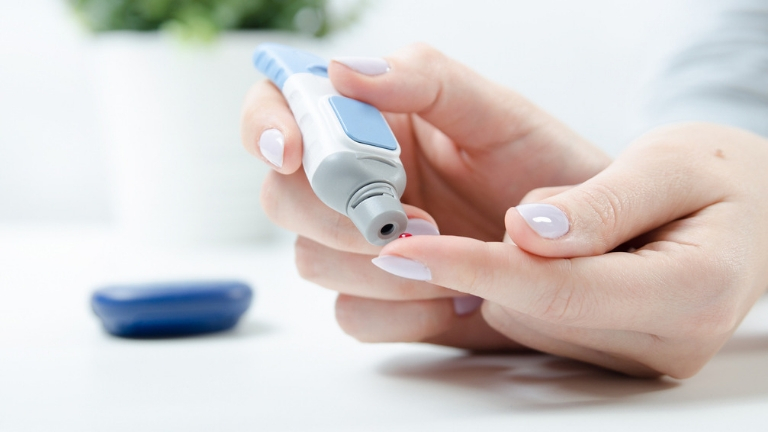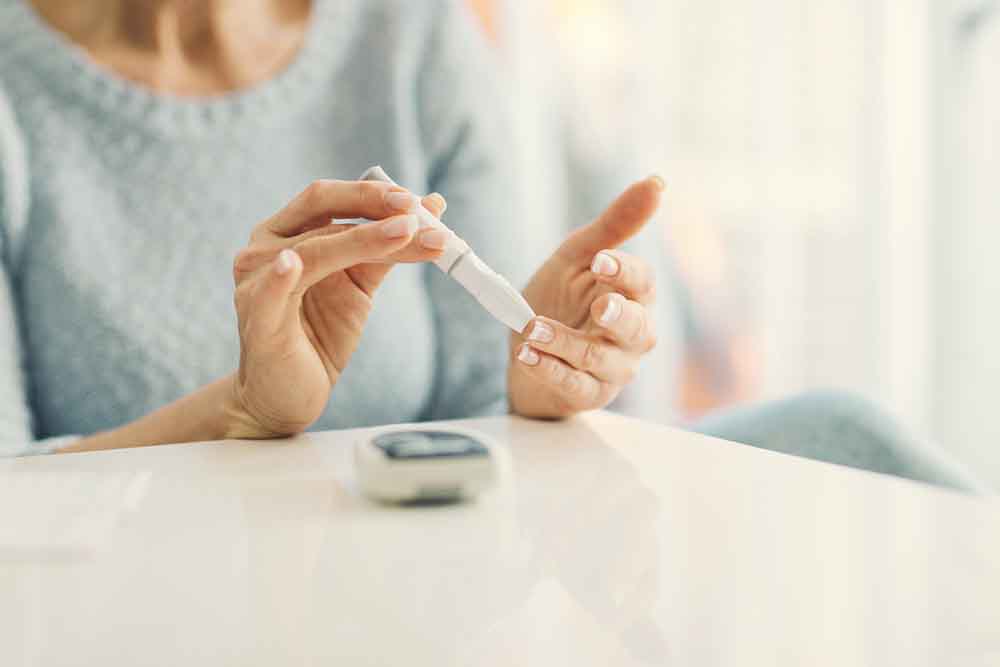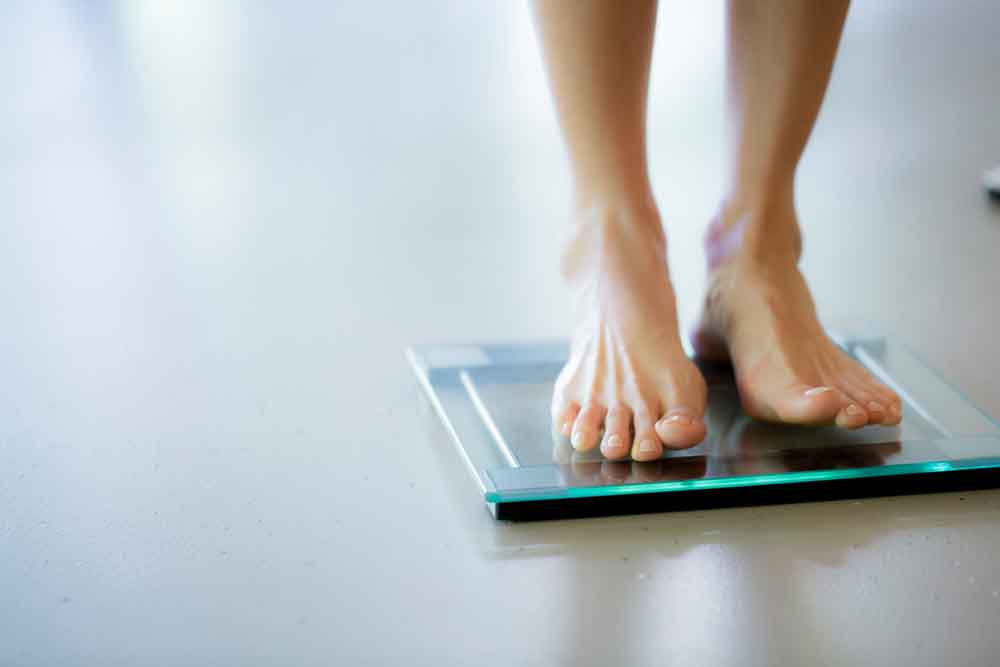NHS prescriptions for diabetes medications have soared by 70% in ten years due to Britain’s growing obesity crisis, costing the NHS £1 billion a year. What’s more, some 850,000 of us have it and don’t even know it
Official figures show that prescriptions for diabetes drugs have increased by 70 per cent in ten years with almost 55 million prescriptions written last year alone.
These prescriptions work out at just over £150,000 every day, and costing the health service more than £1billion a year. Experts warned that the growing cost is being driven up by Britain’s climbing obesity crisis.
One in every 15 adults now has the condition
Experts have also warned that diabetes is now Britain’s largest health threat, which can contribute to even more serious illnesses and complications such as heart attacks, sight loss, amputations, stroke and a higher risk of cancer.
One in every 15 adults now has the condition, but whats more, some 850,000 of us have it and don’t even know it.
According to Diabetes UK almost a million Brits are living with undiagnosed Type-2 diabetes and many will not find out they have it until they develop related health problems such as kidney disease, heart attack, stroke and even blindness. A simple test and a healthy lifestyle can make all the difference.
Type 1 and Type 2 diabetes – what’s the difference?
Each time you eat something your body breaks down food into glucose. Insulin is a hormone your body makes to process that glucose and deliver it to all cells including muscles and liver.
Type 2 diabetes accounts for about 90 per cent of diabetes in the UK and develops – usually in people over 40 – when the body can still make some insulin but not enough or when the insulin it produces doesn’t do its job. It can be treated with a healthy diet, increased physical activity and if needed, medication.
Type 1 diabetes accounts for only ten per cent of cases and develops when insulin-producing cells in the pancreas stop working. It usually strikes before 40 and can’t be prevented. People with this illness take insulin injections several times a day.
Are you at risk?
‘If you have only one risk factor from those listed here and are over 40, an annual test for Type 2 diabetes with your GP would be sensible, regardless of whether you have any symptoms,’ says Dr Bob Young, Clinical Director of the NHS National Diabetes Audit.
- Your mother, father or siblings have Type 2 diabetes
- You have a Body Mass Index (BMI) or 30 or over
- You are of South Asian ethnicity
- You have a waist measurement of 37 or over inches as a man (35 for Asian men) or 31.5 inches as a woman
- You have high blood pressure or you have had a heart attack or stroke
Other risk factors include having polycystic ovarian syndrome, having had gestational diabetes in the past or being told by your doctor you have ‘impaired glucose tolerance’. Also known as ‘pre-diabetes’, this may come with no symptoms but increase your risk of developing Type-2 diabetes.
Good news is, 60 per cent of people with pre-diabetes can prevent its onset with the right lifestyle.
Signs and symptoms
Signs and symptoms of Type-2 diabetes are not always obvious, says Naveed Sattar, Professor Of Metabolic Medicine at the University of Glasgow’s Institute of Cardiovascular Medical Sciences. Watch for:
- Being incredibly thirsty
- Urinating more often, especially at night
- Increasing infections (especially thrush in women)
- Feeling unusually tired or exhausted
- Unexplained weight loss
- Slow healing of cuts and wounds
- Blurred vision
If you have only one of these symptoms, regardless of whether you have any risk factors, ask your doctor for a diabetes test
Getting tested
Your doctor will take a blood test to diagnose diabetes and you may need to fast beforehand, however he/she may instead do a newer blood test known as a Haemoglobin A1C in which you won’t have to fast.
Can I prevent it?
Through healthy lifestyle changes you can reduce your risk of developing diabetes by up to 70 per cent, says Professor Sattar.
Keep to a healthy weight
This means a BMI of under 25, says dietician Paul McCardle. ‘If you are overweight, losing about five to 15 per cent of your body weight – which in most people will be around one and a half to two stones – will make a big difference to risk.
For sustained weight loss, look at how many calories you consume now and shave off 600 a day – not as difficult as it sounds when you imagine two Digestives with your tea are already 160!’ he explains.
Cut back on refined carbohydrates and sugar
‘Along with saturated fat, refined carbohydrates such as sugar, white bread, cakes and crisps, should be minimised in the diet,’ says Dr Bob Young.
Develop a taste for veggies and fruit
‘This takes time but can increase the level of fibre in your diet and mean you snack less on crisps and biscuits,’ says Professor Sattar.
Switch to porridge
This has a lower Glycaemic Index (GI) so it raises your blood sugar at a slower rate than foods with a high GI. Other high to low GI switches include swapping white for grainy bread, regular rice for Basmati and mashed potatoes with mashed butter beans (it’s delicious), suggests Paul McCardle.
Follow a Mediterranean diet
Studies have shown a Mediterranean diet of lowered red meat intake and more fruits, vegetables, fish, chicken and polyunsaturated fats such as olive oil can reduce risk by 50 per cent.
Move more
Your requisite 30 minutes of exercise five times a week can be as simple as walking to work, says Professor Sattar.
‘We also need increased physical activity in our everyday lives,’ he explains. ‘Taking the stairs instead of the lift or even standing up while you talk on the phone can help.’
Help and support Call the Diabetes UK Careline on 0845 120 2960 Mon-Fri 9am – 5pm or log on to Diabetes UK diabetes.org.uk
More Healthista Content:
Got IBS? 18 tiny life changes Britain’s leading gut health expert says will help
Sleep apnoea – the doctor’s guide
9 indigestion causes and exactly how to fix them
Got insomnia? Your gut bacteria may be to blame
Like this article? Sign up to our newsletter to get more articles like this delivered straight to your inbox.
























































